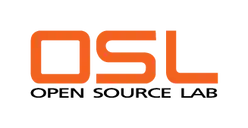https://github.com/jitesoft/docker-lighttpd
Lighttpd alpine linux.
https://github.com/jitesoft/docker-lighttpd
alpine containers docker docker-image dockerfile hacktoberfest lighttpd lighty
Last synced: 9 months ago
JSON representation
Lighttpd alpine linux.
- Host: GitHub
- URL: https://github.com/jitesoft/docker-lighttpd
- Owner: jitesoft
- License: mit
- Created: 2017-10-12T06:59:52.000Z (over 8 years ago)
- Default Branch: master
- Last Pushed: 2025-04-03T20:14:45.000Z (10 months ago)
- Last Synced: 2025-05-09T00:37:25.132Z (9 months ago)
- Topics: alpine, containers, docker, docker-image, dockerfile, hacktoberfest, lighttpd, lighty
- Language: Dockerfile
- Size: 146 KB
- Stars: 10
- Watchers: 2
- Forks: 1
- Open Issues: 0
-
Metadata Files:
- Readme: README.md
- License: LICENSE
Awesome Lists containing this project
README
# Lighttpd
[](https://hub.docker.com/r/jitesoft/lighttpd)
[](https://opencollective.com/jitesoft-open-source)
Alpine linux with Lighttpd built from source.
[Lighttpd](https://lighttpd.net) (lighty) is a lightweight web-server which is designed and optimized for high performance environments.
Lighttpd is open source under the revised BSD license.
To add a new configurations (more than the default configuration), add a new `*.conf` file to the `/usr/local/lighttpd.d` directory.
Each file in that directory will be included into the configuration.
If you wish to replace the base configuration fully, replace the `/etc/lighttpd/conf.d/lighttpd.conf` file or add a new file
and change the `CONFIG_FILE` env variable to your preferred path.
### Deprecation of FPM / introduction of CGI
The -fpm tagged images are deprecated as of 2021-11-28 and will stop receiving updates.
For a replacement, see the -cgi tagged images, which will be similar but with some differences.
## Tags
Tags are based on lighttpd version where latest is the latest version at build time.
Older versions are not re-built, only latest version.
Images can be found at:
* [Docker hub](https://hub.docker.com/r/jitesoft/lighttpd): `jitesoft/lighttpd`
* [GitLab](https://gitlab.com/jitesoft/dockerfiles/lighttpd): `registry.gitlab.com/jitesoft/dockerfiles/lighttpd`
* [GitHub](https://github.com/orgs/jitesoft/packages/container/package/lighttpd): `ghcr.io/jitesoft/lighttpd`
* [Quay](https://quay.io/repository/jitesoft/lighttpd) `quay.io/jitesoft/httpd`
Dockerfiles can be found at [GitLab](https://gitlab.com/jitesoft/dockerfiles/lighttpd/blob/master/cgi/Dockerfile) and
[GitHub](https://github.com/jitesoft/docker-lighttpd).
## The image
This image contains lighttpd built from source, it runs on the alpine linux distro, making it a small image keeping the disk, cpu and ram at a minimum!
### www-data user
Prior to 2021 07 23, the image used the user lighttpd (1000/1000) to run the image.
This have been changed to use the default www-data group and a www-data user with id 82
to comply with standard www-data user in alpine images.
Containers created runs as root (easily changed in production with the appropriate flags),
while the lighttpd process runs as the www-data user (82) by default.
## Environment variables
The following environment variables are used and exposed in the dockerfile:
```txt
PORT=80
SERVER_NAME=localhost
SERVER_ROOT=/var/www/html
CONFIG_FILE=/etc/lighttpd/lighttpd.conf
SKIP_HEALTHCHECK=false
MAX_FDS=1024
```
The default configuration file is located at `/etc/lighttpd/lighttpd.conf` but your own can be included in whatever way you wish.
If you are not replacing the default file you can use the `CONFIG_FILE` variable to point to your own file and ignore the default.
`PORT` 80 is exposed and used by default, if changed, the default configuration will use the port defined in the env variable but
you will have to expose it by yourself. `SERVER_NAME` defaults to localhost. `SERVER_ROOT` defaults to `/var/www/html`.
The `SKIP_HEALTHCHECK` flag will, if set to `"true"` mark the container as healthy as long as it is running, while if left default or set to
`"false"` will run a query on the `127.0.0.1:${PORT}` endpoint every minute.
It's exposed as an environment variable due to the fact that a 404 will be reported as an error and exit the health check with a none-`0` exit code.
The `MAX_FDS` variable sets the maximum file descriptors used by lighttpd and could be tweaked if needed.
## CGI tag
The `cgi` tagged image have `mod_fastcgi` enabled with env variables set to enable connection to a separate cgi host.
The lighttpd container will await the cgi host before starting by checking the host with nc (netcat, busybox version).
```txt
CGI_HOST="fpm"
CGI_PORT="9000"
CHECK_LOCAL="enable"
CGI_FILE_EXT=".php"
```
If you do not want to share data between your containers, set the `CHECK_LOCAL` to "disable" to ignore
local files in the lighttpd container.
The default configuration (which resides in `/etc/lighttpd/conf.d`) contains the following configuration:
```txt
server.modules += ("mod_fastcgi")
fastcgi.server += ( env.CGI_FILE_EXT =>
((
"host" => env.CGI_HOST,
"port" => env.CGI_PORT,
"broken-scriptfilename" => "enable",
"docroot" => env.SERVER_ROOT,
"check-local" => env.CHECK_LOCAL
))
)
```
Once the cgi container have connected, it will create an empty file in `/tmp/ready` which can be used
as a startup indicator if needed.
### Image labels
This image follows the [Jitesoft image label specification 1.0.0](https://gitlab.com/snippets/1866155).
## Licenses
This repository is released under the [MIT license](https://gitlab.com/jitesoft/dockerfiles/lighttpd/blob/master/LICENSE).
You can find the Lighttpd license [here](https://git.lighttpd.net/lighttpd/lighttpd1.4.git/tree/COPYING).
### Sponsors
Jitesoft images are built via GitLab CI on runners hosted by the following wonderful organisations:
_The companies above are not affiliated with Jitesoft or any Jitesoft Projects directly._
---
Sponsoring is vital for the further development and maintaining of open source.
Questions and sponsoring queries can be made by email.
If you wish to sponsor our projects, reach out to the email above or visit any of the following sites:
[Open Collective](https://opencollective.com/jitesoft-open-source)
[GitHub Sponsors](https://github.com/sponsors/jitesoft)
[Patreon](https://www.patreon.com/jitesoft)
